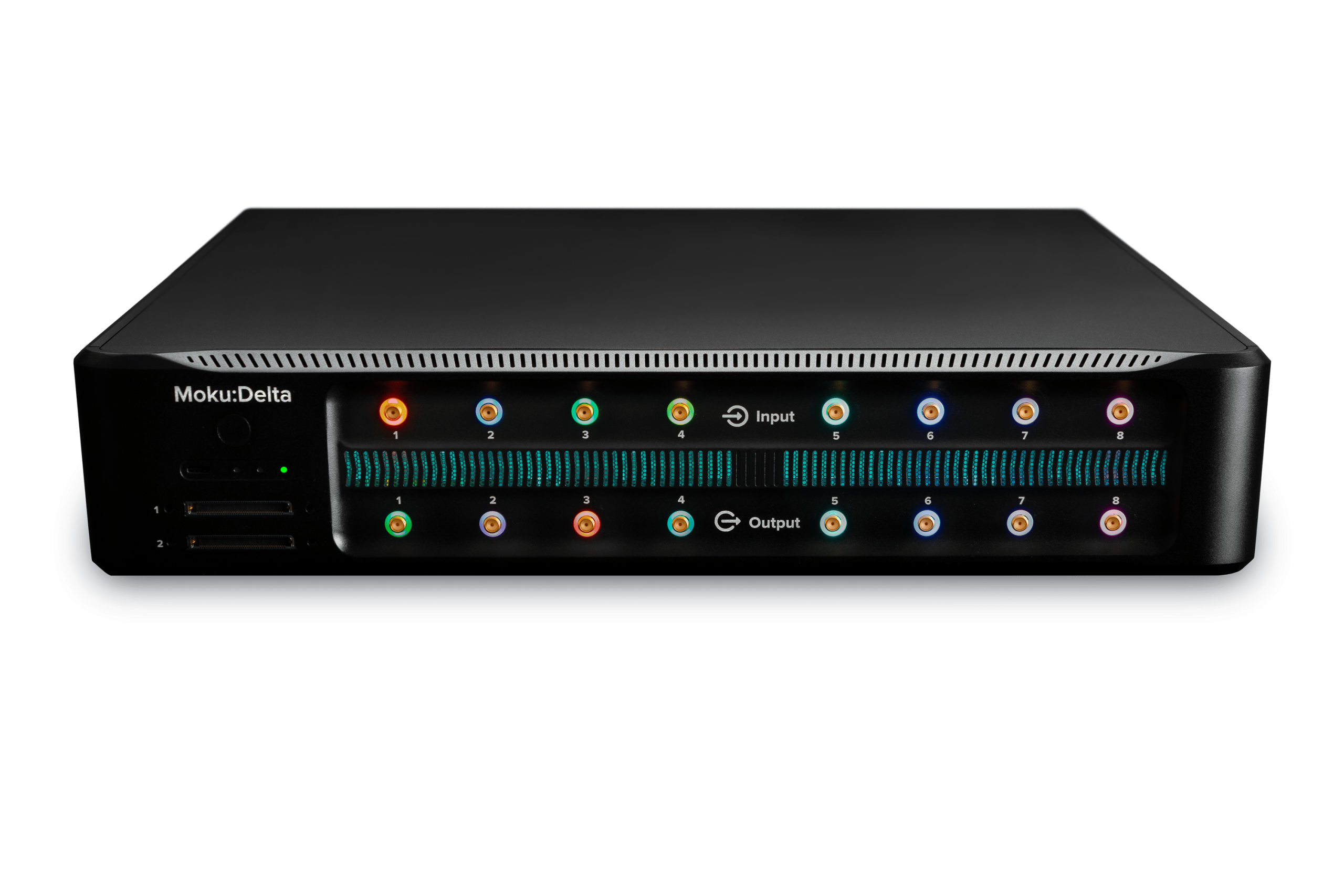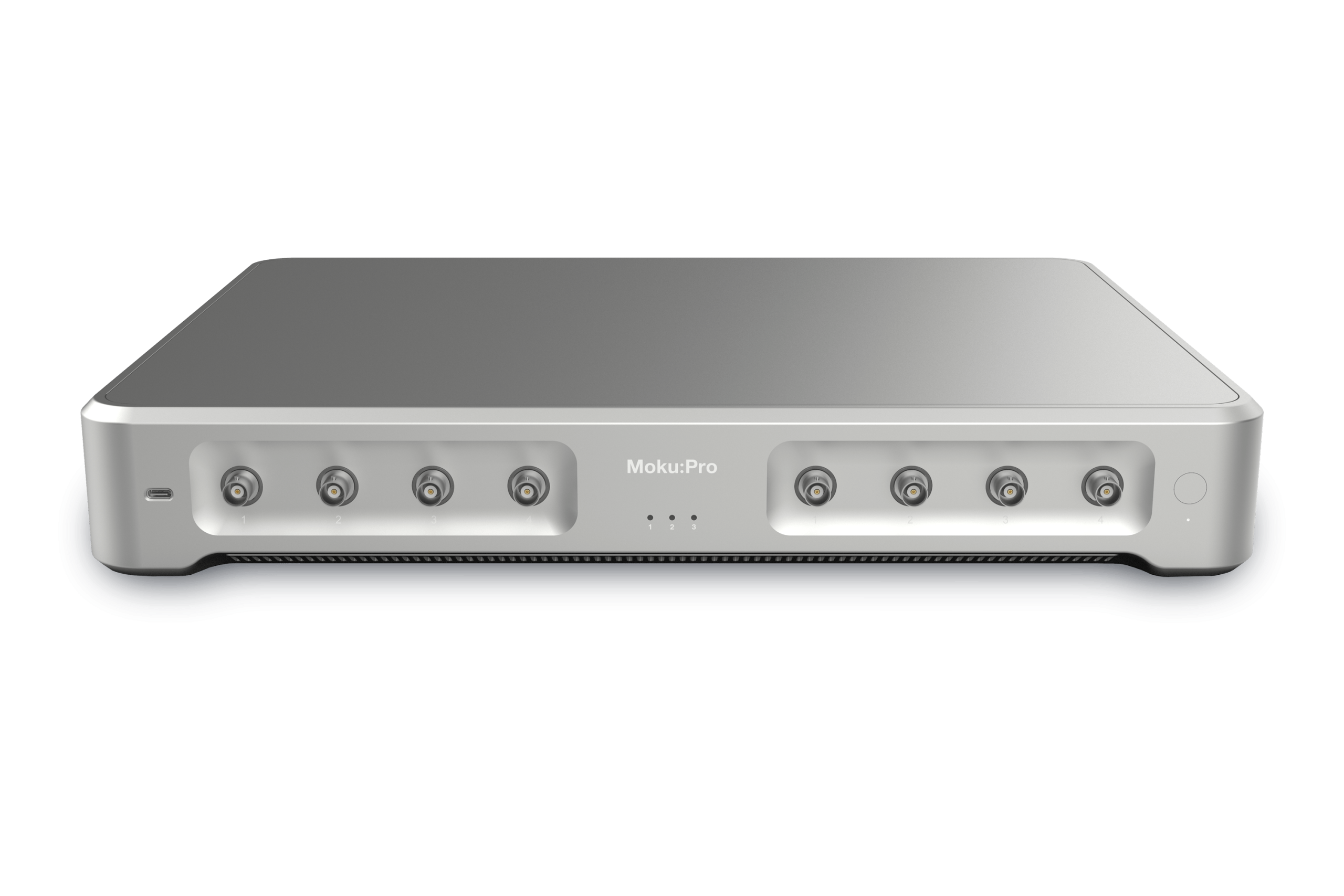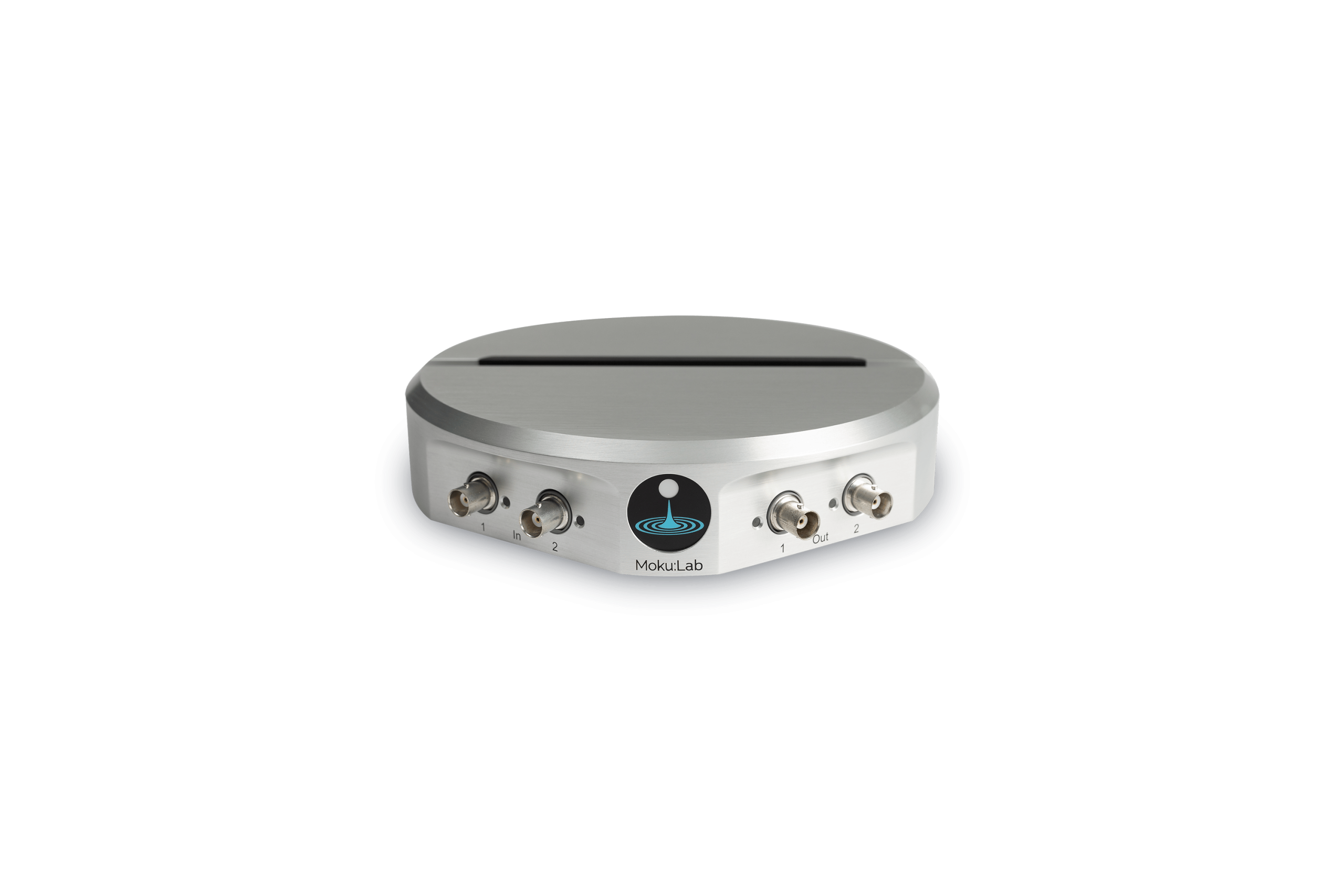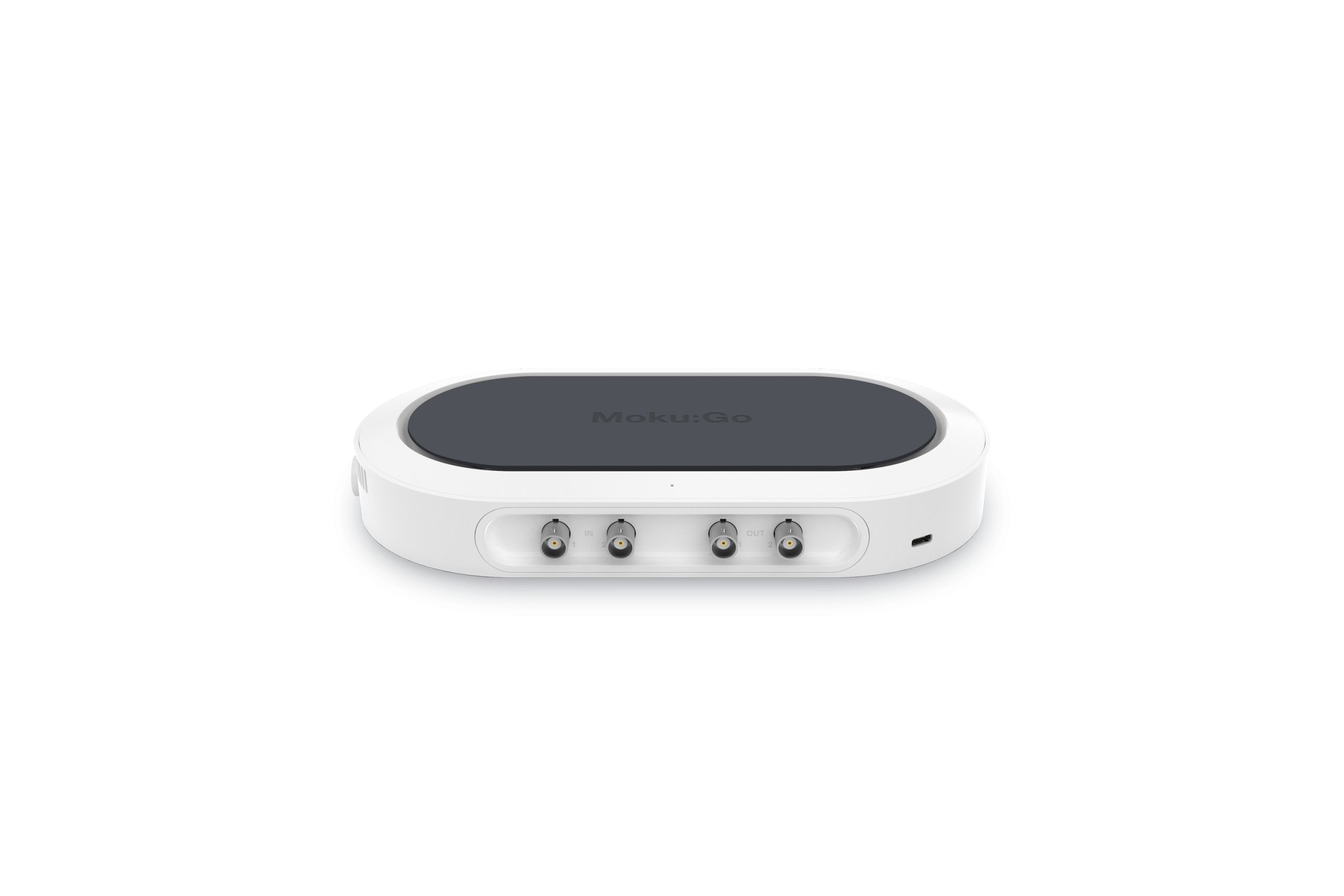Python API
Take control of your Moku hardware with Python. The Python API is compatible with Python scripting and live environments, making it easy to start interacting with your Moku device right away.
Get started
Integrate with Python
There is no limit to what you can do with Python integration for Moku hardware, from real-time interfacing to automated control. Take advantage of the wide array of open-source libraries to further expand your applications.

Interact in real time
Write and share scripts for repeatable automation, or command your Moku hardware live, to record and analyze your data all in a single place by partnering our Python API with Jupyter.

Automated control
The Python API takes Moku hardware to the next level, turning it into an automated test, measurement, and control device for your lab. Python integration enables your Moku to automatically:
- Switch instruments
- Acquire and process measurements in real-time
- Save data logs/metadata for post-processing
- Generate output signals to control your system

Cross-platform performance
The Python API for Moku can be dropped in to any existing lab infrastructure. It’s fully supported on Windows, Linux, and OSX, and in many cases you can install it without special privileges.
Share your programs with all your colleagues and computers, regardless of operating system — they’ll run anywhere.
Supported hardware platforms
Python integration is available across all Moku hardware platforms.
Before you start
Moku hardware supports the following versions of Python:
- Version 3.5+
Get Python*
*Make sure your version of Python is compatible.
Getting started
For Moku:Delta, Moku:Pro, Moku:Lab, and Moku:Go
The API for Python is provided by moku-python, available for download at the Python Package Index or pip install moku.



